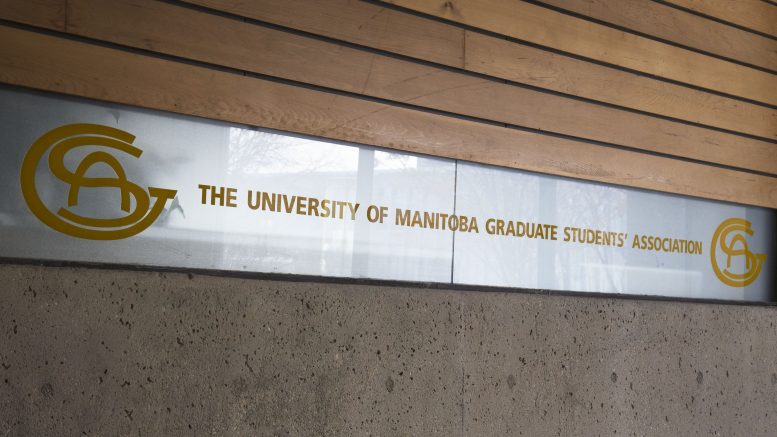Candidates hoping for a seat on the U of M graduate students’ association (UMGSA) council took questions and discussed priorities at the UMGSA general election forum on Tuesday.
During the forum, UMGSA executive committee candidates spoke about a variety of topics including their relevant experience, why they are running in the election and their plans if they are elected.
Current UMGSA president Carl Neumann is running, unopposed, for a third term. He told the Manitoban he believed this was partially a result of the graduate student population’s satisfaction with his leadership.
“Well I’d say there are a few factors there – I think that with the vast majority of people I’ve talked to, almost everybody, they’re pretty happy with what I’ve been doing and the work I’ve been doing, which is great,” he said.
“I think maybe the biggest thing that hinders people from running for president is, it’s a very huge time commitment, it’s significantly more than any of the VP roles or any of the other executive roles, and the vast majority of grad students literally cannot devote the time to that.”
Neumann also spoke about possible changes he is considering introducing in the upcoming term.
“We’re considering whether it might be good to do something similar to what UMSU has with women’s rep, international rep, Indigenous rep and so on, and whether that’s a good idea, and again we want to ask the grad students whether they think that’s a good way to go,” he said.
Neumann’s slate, Experience UMGSA, is the only full platform running.
Experience UMGSA’s vice-president finance and administration candidate Cody Ross, the only other current executive seeking re-election – Ross was the UMGSA vice-president internal for the 2017-18 year – is also running unopposed. The slate also includes vice-president academic candidate Roxie Koohgoli, vice-president services and support candidate Eric Gagnon and senatorial candidates Julia Minarik and Ehsan Tahmasebian.
Three independent candidates are running in the election – Satwant Kaur for senator, Okechukwu Efobi for vice-president services and support and MD Shadhin for vice-president academic.
There are three candidates running for two senator positions, and two candidates running for the vice-president services and support and vice-president academic positions, respectively.
Gagnon said improving accessibility services within the UMGSA is a top priority for him.
“In terms of making the UMGSA more accessible, I think that’s a big thing,” he said in an interview with the Manitoban.
“We talked [about] events, making them more family-friendly, child-friendly, things like that. That, I hope, will increase the accessibility of the UMGSA to come to events and do your research and things like that. I talked about working more closely with UMSU, and potentially lobbying the government or joining up with campaigns and things like that.”
Gagnon said improving the UMGSA’s accessibility would take on many forms, and would include working on the association’s reconciliation efforts.
“The UMGSA, for example, has signed on to the Winnipeg Indigenous Accord and taken on ourselves to actually take seriously some of the calls to action for reconciliation,” he said.
“I think by doing these sorts of things we also hope that, especially for Indigenous students and things like that, to make the UMGSA a lot more accessible.”
Improving the transit services currently in place for students is a goal for Efobi should he take on the vice-president services and support position next year.
“U-Pass is a great scheme that not only makes it cheaper for students to use transit, it also contributes to the solution of climate change and preserves road infrastructure by reducing the number of cars on the road,” he said in an email.
“However, there is need for a comprehensive customer care component to it. This is the platform I am running on.”
“If students who live in Winnipeg are bound by agreement to pay for U-Pass, it is only fair there is a system in place that ensures the services we receive meet minimum requirements,” he said.
Efobi also talked about his motivation behind seeking an executive role.
“Ultimately, the drive to achieve the proposed agenda should be at the forefront of their decision to run for an elected position,” he said.
“In the absence of a clear agenda, one might as well be going through the motions of being an executive.”


